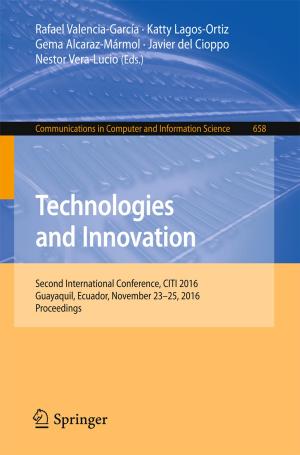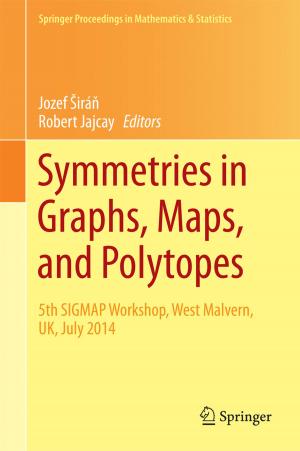Using Imperfect Semiconductor Systems for Unique Identification
Nonfiction, Science & Nature, Technology, Electronics, Semiconductors, Engineering| Author: | Jonathan Roberts | ISBN: | 9783319678917 |
| Publisher: | Springer International Publishing | Publication: | September 14, 2017 |
| Imprint: | Springer | Language: | English |
| Author: | Jonathan Roberts |
| ISBN: | 9783319678917 |
| Publisher: | Springer International Publishing |
| Publication: | September 14, 2017 |
| Imprint: | Springer |
| Language: | English |
This thesis describes novel devices for the secure identification of objects or electronic systems. The identification relies on the the atomic-scale uniqueness of semiconductor devices by measuring a macroscopic quantum property of the system in question. Traditionally, objects and electronic systems have been securely identified by measuring specific characteristics: common examples include passwords, fingerprints used to identify a person or an electronic device, and holograms that can tag a given object to prove its authenticity. Unfortunately, modern technologies also make it possible to circumvent these everyday techniques.
Variations in quantum properties are amplified by the existence of atomic-scale imperfections. As such, these devices are the hardest possible systems to clone. They also use the least resources and provide robust security. Hence they have tremendous potential significance as a means of reliably telling the good guys from the bad.
This thesis describes novel devices for the secure identification of objects or electronic systems. The identification relies on the the atomic-scale uniqueness of semiconductor devices by measuring a macroscopic quantum property of the system in question. Traditionally, objects and electronic systems have been securely identified by measuring specific characteristics: common examples include passwords, fingerprints used to identify a person or an electronic device, and holograms that can tag a given object to prove its authenticity. Unfortunately, modern technologies also make it possible to circumvent these everyday techniques.
Variations in quantum properties are amplified by the existence of atomic-scale imperfections. As such, these devices are the hardest possible systems to clone. They also use the least resources and provide robust security. Hence they have tremendous potential significance as a means of reliably telling the good guys from the bad.















